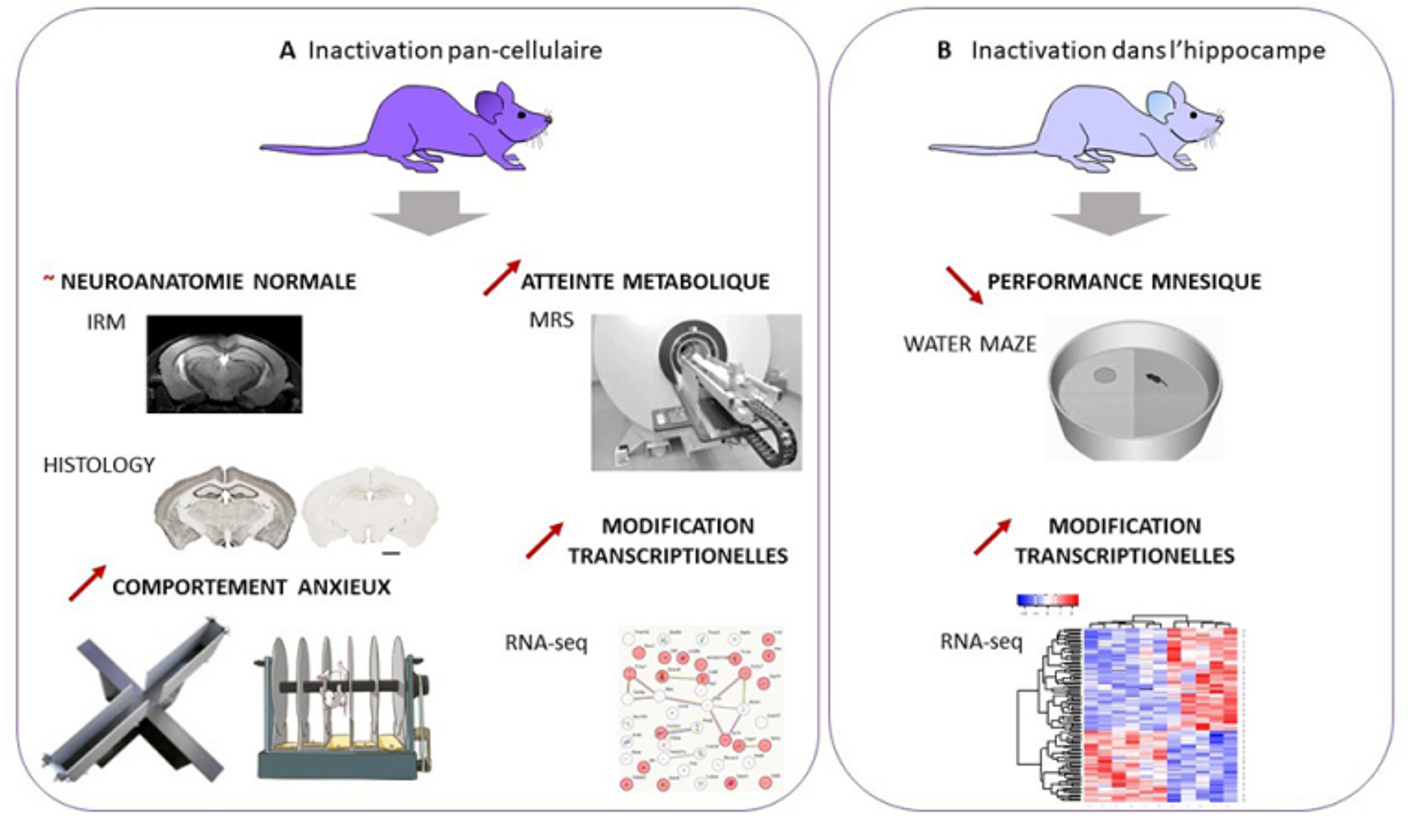The causes of psychiatric disorders such as depression, anxiety disorders, obsessive-compulsive disorders, and schizophrenia remain poorly understood. These conditions are thought to be linked to a genetic background that increases patients' sensitivity to various environmental factors and personal history. Subtle modifications of certain genes have been identified in patients. These genes are not directly responsible for the disorders, but rather act as “risk factors.”
In a study published in Brain, a team of researchers from CNRS and MIRCEN focused on the gene encoding the protein DCLK3 (Doublecortin-like kinase 3), an enzyme belonging to the large kinase family. This protein had previously been studied in the context of Huntington’s disease, a hereditary neurodegenerative disorder. To better understand its neurobiological function, the researchers created a mouse model in which the expression of this gene can be inactivated at different developmental stages and in different brain regions.
Inactivation of DCLK3 from birth: a link with anxiety
Behavioral analysis of these mice revealed that inactivation of DCLK3 does not produce major brain structural defects, nor significant impairments in motor skills, task-learning ability, or sleep–wake cycle regulation. However, in male mice, inactivation of the gene from birth is associated with anxious behavior, but only in novel and mildly stressful situations (such as when moving at height or swimming across short distances). This anxiety, however, disappears after repeated exposure to these situations.
In male mice as well, brain analysis using a non-invasive method—high-field magnetic resonance spectroscopy (MRS)—showed that the behavioral changes are linked to alterations in brain metabolism reminiscent of those observed in patients suffering from chronic anxiety.
Inactivation of DCLK3 in adulthood: memory impairments
Sudden inactivation of DCLK3 in adult mice, specifically in the hippocampus, induces memory disorders. The mice learn normally to orient themselves in their environment, but quickly forget after a few days without training. This observation is associated with major changes in hippocampal gene expression, notably an increase in GABA receptors and a decrease in the expression of genes linked to synaptic plasticity.
Creating a mouse model in which DCLK3 expression can be selectively inactivated has enabled a better understanding of the biological role of this gene. This study demonstrates its crucial involvement in the brain’s adaptation to new stressful situations, as well as in processes related to memory. It strengthens the hypothesis of a key role for DCLK3 in certain neurodegenerative diseases and psychiatric disorders.

© L. de Longprez, / CEA @ E. Brouillet / CEA
Contact : Karine Cambon